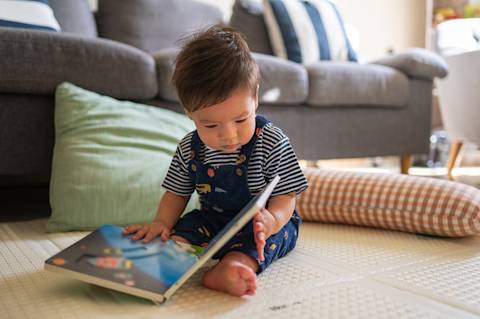As caregivers, we have the incredibly important job of giving our children the tools and support that will help them thrive throughout their lives. Helping them become resilient, or able to bounce back from difficult moments, will provide lasting benefits to our children.

Resilience is a key skill that can help children cope with the challenges and setbacks they will encounter throughout their lives in a healthy way. Resilient children are more likely to be confident and independent because they can handle challenges and can work through feelings of overwhelm or discouragement.
Teaching children how to be resilient can also have long-term benefits for their mental health and well-being. Resilient children are less likely to experience anxiety, depression, and other mental health challenges. They’re also more likely to have a positive outlook on life.
The following three factors can help your child become more resilient.
Developing problem-solving skills
When children learn how to think creatively and find solutions to problems, they’re more likely to keep working on a project or goal when they hit setbacks. Problem-solving skills can also help children develop a sense of control over their own lives. When they are able to identify and solve problems, they feel empowered and are more likely to take an active role in tackling challenges and overcoming setbacks.
To help your child develop problem-solving skills, you can encourage them to come up with solutions on their own by asking questions like “How would you do it? Can you think of another way to do it?” Role-playing can also be a useful way to help children practice problem-solving skills. For example, you can act out a common scenario and ask your child how they would solve the problem. You can try putting a toy in a different spot than usual and encourage them to figure out how to find it on their own. When you finish reading a page in a book, you can ask your child what you should do next. Children’s puzzles can also be a great way to help your child develop their problem-solving skills.
Learning how to manage emotions, or self-regulate
Self-regulation is the ability to understand and express your thoughts, emotions, and behaviors in a healthy way. It can help children cope with stress and handle social situations. When children are able to regulate their emotions and behaviors, they are better able to focus, pay attention, and stay on task, which can help them succeed academically and in other areas of life.
One of the best ways to teach children how to self-regulate is to help them better understand the different emotions they might be feeling and give them tools to use when they’re experiencing big emotions. For example, practicing deep breathing is a great tool that can help children calm their bodies and minds when they are feeling overwhelmed or stressed. Find more information about how to teach breathing techniques, as well as additional ways to help children develop self-regulation skills.
Building strong, stable relationships with adults
When children have safe, strong relationships with adults, they receive emotional support and encouragement during difficult times. This can help children feel more confident and able to overcome challenges. Children can also learn new, healthy coping strategies from the adults they feel safe around. Strong relationships with adults also give children a sense of belonging and connection to others, which can be an important source of support and resilience.
The first step for helping your child develop safe, supportive relationships with adults is to talk to them about boundaries. Explain how to interact with adults, and encourage them to tell you if they feel uncomfortable or unsafe in a situation. Remind your child often about the importance of boundaries and communication. In simple, kid-friendly terms, talk to them about inappropriate behavior, such as an adult asking them to keep a secret from their caregivers.
Then, you can start introducing your child to adults you already know and trust. Close friends and family members, teachers, and coaches can all be supportive adult role models for your child. Through simple language and age-appropriate explanations, you can introduce the new adult and explain their role. For example, “This is Becky! She’s my best friend, just like Aaron is your best friend. I’m hoping she can be your friend too, so she’s going to come over sometimes and play with us.” When you take a gradual and supportive approach to introducing your child to new adults, you can help them feel more comfortable and confident as they build new relationships.






